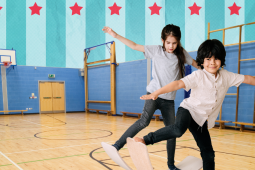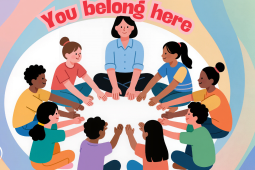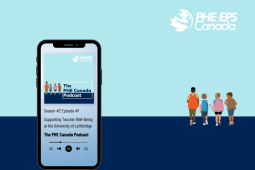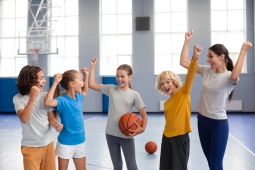Thoughtful Tips for Teaching During Winter
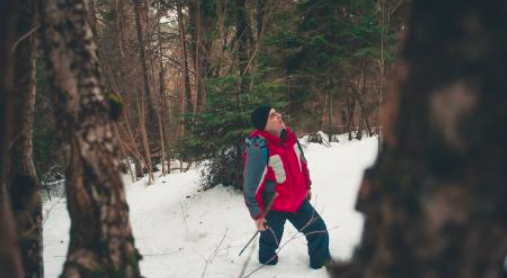
Previously published in Volume 86, Issue 3
Tis the season to teach – both indoors and outside. Here is a short compilation of our top three tips. More outdoor teaching content can be found from an upcoming new resources that PHE Canada will launch in early 2021. Please note, this resource is meant to support – not replace – the recommendations of public health, school boards and teacher unions.
A tip to try indoors:
We have an amazing Head of Physical Education, Dan Gosse, who is very involved with all of our special needs students. He has involved our students in city-wide activities, school-wide activities, and regularly comes to teach fun games to staff and students! He has really been instrumental in working with our special needs students and physical education.
Our specialized staff sees physical education as more than just physical activity. For our special needs students, physical education is a way for them to express themselves and connect with each other through movement and games.
We have used social distance in the classroom and tried GoNoodle dance videos and other YouTube videos. This allows children and staff to be active and have fun together. Physical movement, laughter and self-expression have a measurable effect on the mood and energy of students and staff. Nothing we do is revolutionary, but I like the way it connects and relates to students and staff.
Patrick Johner, Edmonton Public Schools
Take it outside with these 2 quick tips:
Traditionally, my Physical Education classes will spend four of our 10 months learning outdoors. Spending all 10 months outside learning is possible, however, a few factors will contribute to the success of your program and the enjoyment of learning by your students.
No one learns well if they are too hot or too cold. Always explain to your students how to use layers of clothing to their advantage to make their learning experience enjoyable.
Understanding thermoregulation and incorporating that principle into your program is important for both safety and learning.
Justin Oliver, Nova Scotia
With the release of the Truth and Reconciliation Commission of Canada: Calls to Action in 2015, educators across the land known as Canada, have the obligation and responsibility to incorporate Indigenous Ways of Knowing and content into their courses. The current situation has now afforded teachers the unique opportunity to engage in land-based learning. For many teachers, who are used to teaching in a gymnasium, this will mean stepping out of your comfort zone and for other teachers, this will mean an opportunity for you to authentically incorporate Indigenous perspectives into your classes.
Where to get started?
Go outside: The Indigenous peoples of this land have a unique reciprocal relationship with the land. What relationship did the original inhabitants of your area have and currently have? How can you interact with the land in a meaningful way? How do you currently use the land? How can you demonstrate respect for the land? For those in an urban setting, getting out on the land authentically will require some real creativity, but it can be done.
Julie Andrews, Fond Du Lac Denesųłıné First Nation, Saskatchewan
If you are looking for a resource to guide you in winter teaching, stay tuned to PHE Canada's new Winter Resource on our website: https://phecanada.ca/activate/return-school-phe.





